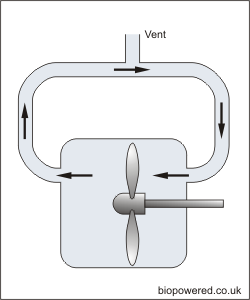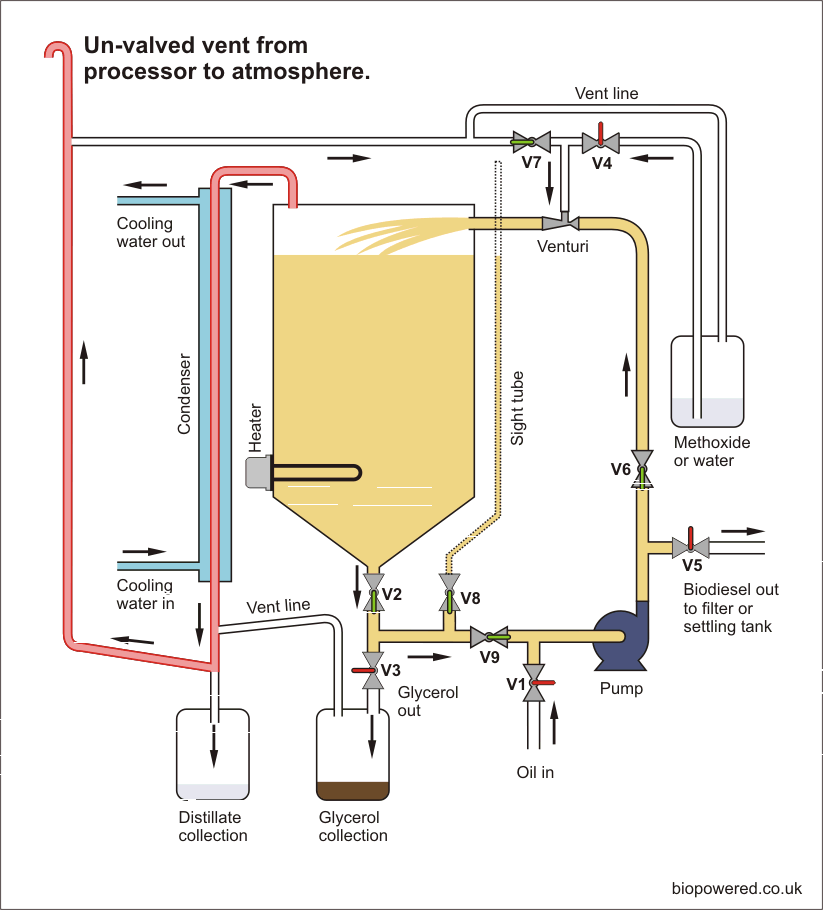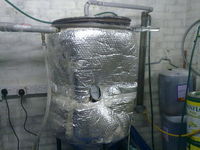Importance of venting a processor
This page will soon be completed by Mark following an intensive and extensive wiki lesson.
Only if I was paying attention Julian.
Heh well done so far Mark - Tony :)
introduction
All processors shown in the pages must be vented to alow air to be displaced/replaced when oil/bio is added to or removed from the vessel.
It is important that the vent does not have a valve on it as it must stay open at all times.
The way the vent system works is the vapor is pulled out of the reactor by the venturi, through the condencer and back to the venturi.
So the vapor curculated around the system and is not under any pressure.
The vent on a GL is normally on the vapor line (highlighted in red) after the condenser, this way any methanol fumes that are released during the reaction,or in the de-meth stage, will get condenced off and collected in the methanol collection vessel.
Consequences
Negative pressure
If the vent becomes blocked it can produce a build up of positive or negative pressure.
This can have sever effects on the reactor it's self.
Negative pressure can and will cause the reactor to implode as seen in these pictures.
- This is a steel cone bottomed drum
Positive pressure
The most likely way to produce positive pressure in a GL is by pumping oil into it with a closed vent, although in most cases it is unlikely the pump will produce enough pressure to cause a problem.
However if a reactor full of cold oil was heated with a closed vent this could build up a surprising amount of pressure.
It is possible the the reactor or pipework could rupture, but an explosion is highly unlikely in this scenario.




